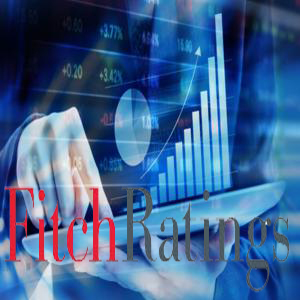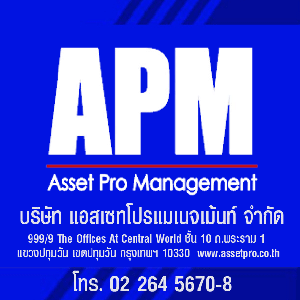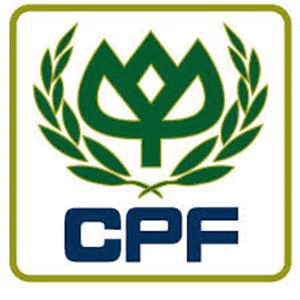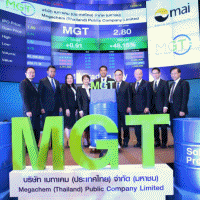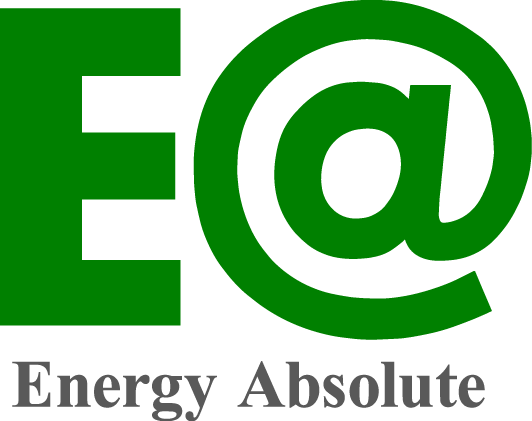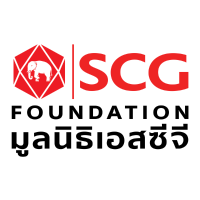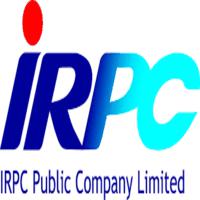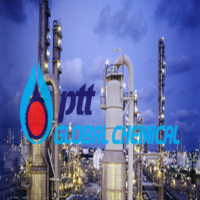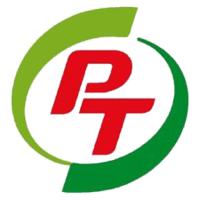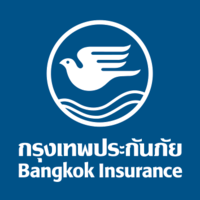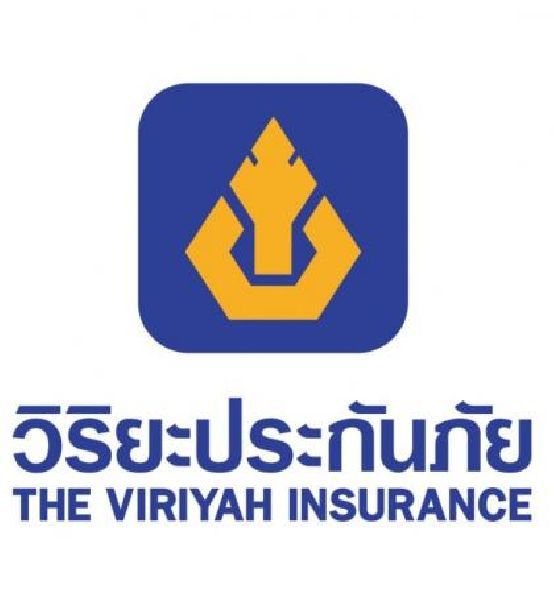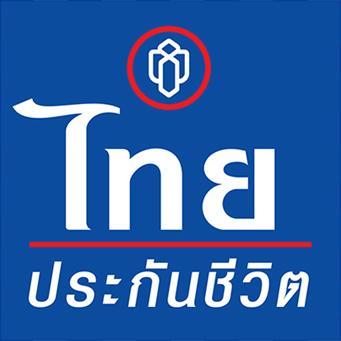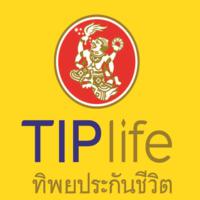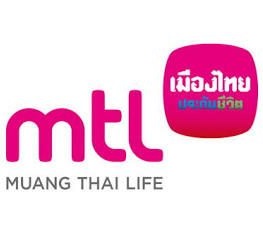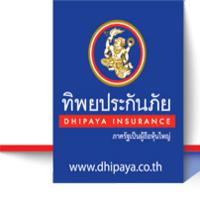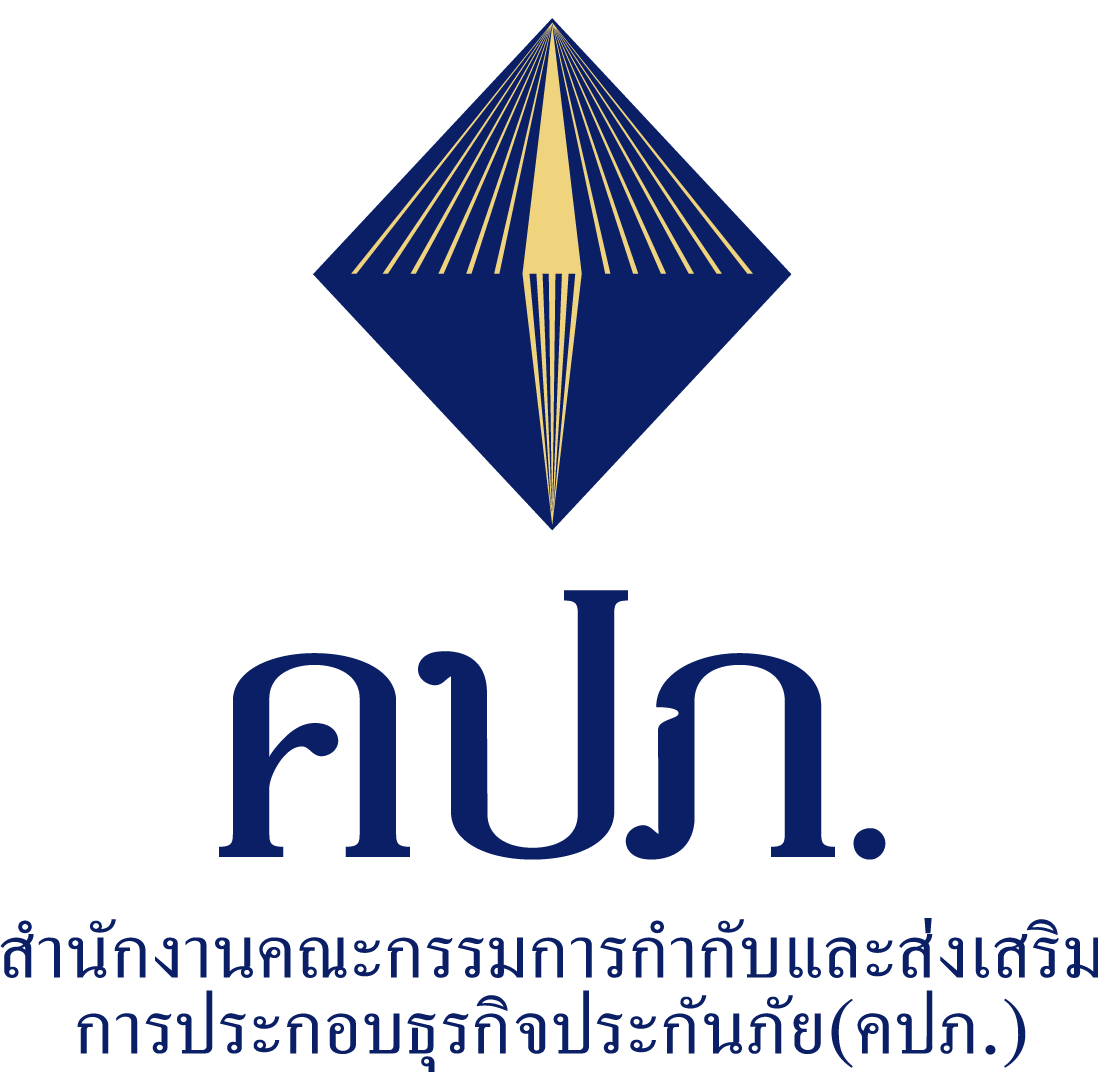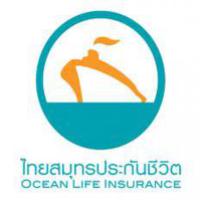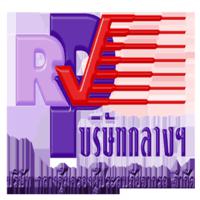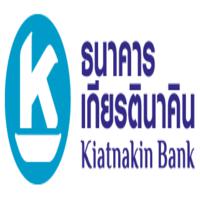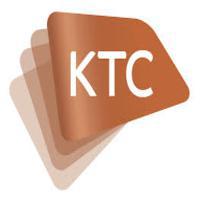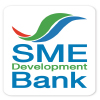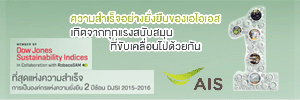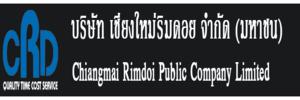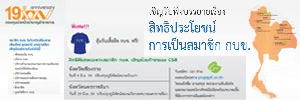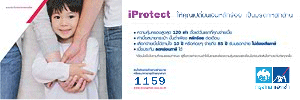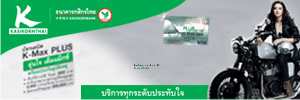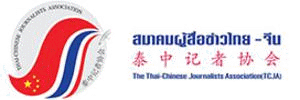ฟิทช์ เรทติ้งส์ - กรุงเทพฯ - 13 มีนาคม 2561 - บริษัท ฟิทช์ เรทติ้งส์ (ประเทศไทย) จำกัด ประกาศคงอันดับเครดิตภายในประเทศ (National Rating) ระยะยาวของ บริษัท ไออาร์พีซี จำกัด (มหาชน) ที่ระดับ 'A- (tha)' อันดับเครดิตภายในประเทศระยะสั้นที่ 'F2 (tha)' และอันดับเครดิตภายในประเทศระยะยาวสำหรับหุ้นกู้ไม่มีหลักประกันและไม่ด้อยสิทธิของบริษัทฯ ที่ระดับ ‘A-(tha)’ อันดับเครดิตดังกล่าวสะท้อนถึงกระแสเงินสดจากการดำเนินงานที่ปรับตัวดีขึ้นและอัตราส่วนหนี้สินของบริษัทฯ ในระดับปานกลางหลังเข้าลงทุนในโครงการพาราไซลีน (PX)
ปัจจัยที่มีผลต่ออันดับเครดิต
ความสามารถในการลงทุนโดยไม่กระทบต่ออันดับเครดิตที่เพิ่มขึ้น: ฟิทช์คาดว่าอัตราส่วนหนี้สินฯ ของ IRPC จะอยู่ในระดับค่อนข้างต่ำในปี 2561 โดยได้รับการสนับสนุนจากกระแสเงินสดจากการดำนินงานที่แข็งแกร่ง โดยอัตราส่วนหนี้สินของบริษัทฯ ที่คำนวณจากอัตราส่วนหนี้สินสุทธิที่ปรับปรุงแล้วต่อกระแสเงินสดที่ได้จากการดำเนินงานก่อนการเปลี่ยนแปลงของสินทรัพย์และหนี้สินจากการดำเนินงาน (FFO-adjusted net leverage) ปรับตัวดีขึ้นมาอยูที่ 2.8 เท่าในปี 2560 (2559: 3.6 เท่า) ซึ่งส่งผลให้บริษัทมีความสามารถรองรับการลงทุนเพิ่มเติมและรองรับการปรับตัวลดลงของส่วนต่างราคาผลิตภัณฑ์กับวัตถุดิบ
การลงทุนที่มีแนวโน้มสูงขึ้น: การลงทุนของ IRPC มีแนวโน้มเพิ่มขึ้นอย่างมีนัยสำคัญจากแผนเดิม โดยฟิทช์คาดว่าบริษัทฯจะดำเนินการลงทุนในโครงการพาราไซลีน (PX) หลังจากบริษัทศึกษาการลงทุนเสร็จสิ้น โครงการ PX จะทำการเปลี่ยน แนฟทา, โทลูอีนและไซลีน ไปเป็น พาราไซลีน เบนซิน และผลิตภัณฑ์อื่น โดยบริษัทฯประเมินว่าจะต้องใช้เงินลงทุนประมาณ 1-1.1 พันล้านเหรียญสหรัฐ ฟิทช์คาดว่าเงินลงทุนส่วนใหญ่ของโครงการจะอยู่ในช่วงปี 2562-2565 ดังนั้น ฟิทช์คาดว่าอัตราส่วนหนี้สินของบริษัทฯจะเพิ่มขึ้นไปที่ประมาณ 3.5 – 4.0 เท่าในปี 2563-2565 (2560 : 2.8 เท่า)
สถานะทางธุรกิจที่ดีขึ้น: ฟิทช์คาดว่าการปรับตัวที่ดีขึ้นของส่วนต่างกำไรของ IRPC จะมีเสถียรภาพและมีความผันผวนลดลงเป็นผลมาจากการเพิ่มขึ้นของผลิตภัณฑ์ที่มีมูลค่าเพิ่มและการกลั่นน้ำมันดิบที่สูงขึ้นจากการขยายความสามารถของโรงกลั่น การดำเนินการของ 2 โครงการสำคัญ ได้แก่โครงการ upstream project for hygiene and value-added products (UHV) ซึ่งจะช่วยเพิ่มสัดส่วนผลผลิตของผลิตภัณฑ์ที่มีมูลค่าสูงในทั้งธุรกิจโรงกลั่นน้ำมันและธุรกิจผลิตปิโตรเคมี และ โครงการ polypropylene expansion and polypropylene inline compound project ในช่วงปี 2559-2560 ผนวกกับการเพิ่มขึ้นของกำลังการกลั่นน้ำมันดิบนั้น จะผลักดันทั้งรายได้และการเติบโตของอัตราส่วนกำไร นอกจากนี้ฟิทช์คาดว่าโครงการ PX จะเพิ่มอัตราส่วนกำไรหลังโครงการเสร็จสิ้นในปี 2566
IRPC มีความได้เปรียบในการแข่งขันในฐานะผู้ผลิตในทั้งธุรกิจโรงกลั่นน้ำมันและธุรกิจผลิตปิโตรเคมีแบบครบวงจรที่มีความชำนาญและมีประวัติอันยาวนานในธุรกิจปิโตรเคมีของประเทศไทย การผลิตผลิตภัณฑ์ปิโตรเคมีแบบครบวงจรจากต้นน้ำไปยังปลายน้ำส่งผลให้บริษัทมีข้อได้เปรียบด้านค่าใช้จ่าย ความหลากหลายของผลิตภัณฑ์ และความผันผวนของรายได้ที่ลดลงเมื่อเทียบกับผู้ผลิตที่ไม่ได้ผลิตแบบครบวงจร
ความผันผวนของธุรกิจ: อันดับเครดิตของ IRPC ยังพิจารณารวมถึงความเสี่ยงจากความผันผวนที่สูงของราคาน้ำมัน รายได้ค่าการกลั่น ตลอดจนส่วนต่างระหว่างราคาวัตถุดิบและผลิตภัณฑ์ปิโตรเคมี ซึ่งอาจส่งผลกระทบอย่างมากต่อความสามารถในการทำกำไร
และกระแสเงินสดของบริษัทฯ
การขยายเทอมการชำระเงินช่วยเสริมความคล่องตัวทางการเงิน: ฟิทช์มองว่าการขยายเทอมการค้าในการซื้อน้ำมันดิบกับ ปตท.ซึ่งเป็นผู้ถือหุ้นรายใหญ่ของบริษัทฯนั้น จะช่วยเพิ่มความคล่องตัวทางการเงินให้กับ IRPC นอกเหนือจากช่วยเสริมสภาพคล่องให้กับบริษัทฯ ซึ่งเทอมการค้าฯ 60 วัน จากปตท. ได้มีการขยายเพิ่มขึ้นอีกหนึ่งปีจนถึงสิ้นปี 2561 ก่อนจะกลับสู่เทอมปกติที่ 30 วัน โดยทั้งสองบริษัทจะทำการทบทวนข้อตกลงต่างๆในเทอมการค้านี้เป็นรายปี และสามารถต่ออายุได้โดยตกลงร่วมกันซึ่งจะช่วยเพิ่มความคล่องตัวให้กับบริษัทในการบริหารอัตราส่วนหนี้สินฯและสภาพคล่องทางการเงินของบริษัทฯ
ความเชื่อมโยงกับปตท: อันดับเครดิตภายในระยะยาวของ IRPC ได้รับการปรับเพิ่มขึ้นหนึ่งอันดับเครดิต จากความเชื่อมโยงในระดับปานกลางกับผู้ถือหุ้นรายใหญ่ของบริษัทฯ ซึ่งได้แก่บริษัท ปตท. ตามหลักเกณฑ์การพิจารณาอันดับเครดิตในเรื่อง Parent and Subsidiary Rating Linkage IRPC อยู่ภายใต้กรอบการบริหารการเงินส่วนกลางของปตท. ในขณะที่กลุ่มผู้บริหารหลักจากปตท. จะถูกหมุนเวียนในกลุ่ม บริษัทย่อยของปตท. รวมถึง IRPC ด้วย นอกจากนี้ปตท. ได้ให้การสนับสนุนทางด้านการค้าให้แก่ IRPC ในด้านต่างๆ เช่นการให้สินเชื่อสำหรับน้ำมันดิบ แม้ว่าปตท. จะเพิ่มสัดส่วนการถือหุ้นใน IRPC เป็นร้อยละ 48.1 จากร้อยละ 38.5 แต่การเพิ่มสัดส่วนดังกล่าวไม่น่าจะมีผลกระทบอย่างมีนัยสำคัญต่อความเชื่อมโยงของ IRPC กับปตท.
การกำหนดอันดับเครดิตโดยสรุป
อันดับเครดิตของ IRPC สะท้อนถึงการดำเนินธุรกิจที่ต่อเนื่องครบวงจรตั้งแต่การกลั่นน้ำมันไปจนถึงการผลิตผลิตภัณฑ์ปิโตรเคมีขั้นปลาย อย่างไรก็ตามสถานะทางธุรกิจของ IRPC ยังอยู่ในระดับปานกลางเมื่อเทียบกับบริษัทในธุรกิจการกลั่นน้ำมันและปิโตรเคมีในประเทศไทยที่ฟิทช์จัดอันดับเครดิต ในขณะที่ IRPC มีอัตราส่วนหนี้สินที่ค่อนข้างสูงเมื่อเทียบกับคู่แข่งดังกล่าว IRPC มีขนาดธุรกิจที่เล็กกว่าบริษัท พีทีทีโกลบอลเคมิคอล จำกัด (มหาชน) ((AA) (tha) / แนวโน้มเครดิตมีเสถียรภาพ/F1+(tha),สถานะทางเครดิตโดยลำพัง AA- (tha)) และ บริษัท ไทยออยล์ จำกัด (มหาชน) ((AA- (tha) / แนวโน้มเครดิตมีเสถียรภาพ/ F1+(tha), สถานะทางเครดิตโดยลำพัง A+(tha)) และมีอัตราส่วนหนี้สินที่สูงกว่ามาก เมื่อเปรียบเทียบกับบริษัท เอสโซ่ (ประเทศไทย) จำกัด (มหาชน) (F1 (tha) สำหรับตั๋วแลกเงิน) IRPC มีขนาดธุรกิจที่ใหญ่กว่าและมีอัตราส่วนหนี้สินที่ต่ำกว่าเล็กน้อย แต่ฟิทช์มองว่า ESSO มีความเชื่อมโยงกับบริษัทแม่ที่มากกว่ามาก
สมมติฐานที่สำคัญของฟิทช์ที่ใช้ในการประมาณการ:
- ราคาน้ำมันดิบ (เบรนท์) ที่ราคา 52.5 เหรียญสหรัฐฯ ต่อบาร์เรลในปี 2561, 55 เหรียญสหรัฐฯ ต่อบาร์เรลในปี 2562 และ 57.5 เหรียญสหรัฐฯ ต่อบาร์เรลในปี 2563 เป็นต้นไป โดยมีการปรับปรุงด้วยส่วนต่างราคาน้ำมันตามการซื้อน้ำมันดิบของ IRPC
- Gross integrated margins ที่ลดลงเล็กน้อยจากปี 2561 เป็นต้นไป
- จำนวนเงินลงทุนในโครงการ PX มูลค่า 1 - 1.1 พันล้านเหรียญสหรัฐในช่วง 2562-2565
- สินเชื่อระยะเวลา 60 วันจากปตท. ขยายไปในปี 2561 และจะลดลงเหลือ 30 วันในปี 2562
- อัตราการจ่ายเงินปันผล 50%
ปัจจัยที่อาจมีผลกับอันดับเครดิตในอนาคต
ปัจจัยบวก:
- ความสามารถในการรักษาอัตราส่วน FFO-adjusted net leverage ต่ำกว่า 3 เท่าอย่างต่อเนื่อง
- ความมีวินัยในการใช้เงินลงทุนและการจ่ายเงินปันผลให้แก่ผู้ถือหุ้น และการแสดงให้เห็นถึงความมุ่งมั่นที่จะปรับลดอัตราส่วนหนี้สินให้ดีขึ้น
- ความสัมพันธ์ในด้านการดำเนินงานและความสำคัญในเชิงกลยุทธ์ของบริษัทฯ ต่อ ปตท. ที่เพิ่มขึ้น
ปัจจัยลบ:
- กระแสเงินสดจากการดำเนินงานที่ต่ำกว่าที่คาด การเพิ่มขึ้นของเงินลงทุนที่ใช้หนี้เป็นแหล่งเงินทุน หรือการจ่ายเงินปันผลให้ผู้ถือหุ้นในระดับสูง อันเป็นผลให้อัตราส่วน FFO-adjusted net leverage สูงกว่า 4.5 เท่าอย่างต่อเนื่อง
- ความสัมพันธ์ในด้านการดำเนินงานและความสำคัญในเชิงกลยุทธ์ของบริษัทฯ ต่อ ปตท. ที่ลดลง
สภาพคล่อง
สภาพคล่องที่เพียงพอ: IRPC มีหนี้สินคงค้าง ณ สิ้นปี 2560 จำนวน 58.8 พันล้านบาท โดยจำนวน 13.6 พันล้านบาทจะครบกำหนดชำระคืนภายใน 12 เดือนซึ่งประกอบด้วย หุ้นกู้มูลค่า 5.0 พันล้านบาท เงินกู้ยืมระยะยาวที่ถึงกำหนดชำระคืนภายในหนึ่งปีจำนวน 5.5 พันล้านบาท และ เงินกู้ยืมระยะสั้นจากสถาบันการเงินจำนวน 3 พันล้านบาท สภาพคล่องของบริษัทฯ ได้รับการสนับสนุนจากเงินสดที่มีอยู่จำนวน 2.1 พันล้านบาท วงเงินสินเชื่อหมุนเวียนจากสถาบันการเงินที่ยังไม่ได้เบิกใช้มูลค่า 5 พันล้านบาท ณ สิ้นปี 2560 วงเงินกู้ระยะสั้นที่สามารถเบิกกู้ได้จาก ปตท. จำนวน 10 พันล้านบาทรวมถึงเทอมการค้าสำหรับ การชำระค่าวัตถุดิบที่สามารถขยายได้จาก ปตท.
Fitch Affirms Thailand's IRPC at 'A-(tha)'; Outlook Stable
Fitch Ratings-Bangkok-13 March 2018: Fitch Ratings (Thailand) has affirmed refining and petrochemical company IRPC Public Company Limited's (IRPC) National Long-Term Rating at 'A-(tha)', its National Short-Term Rating at 'F2(tha)', and the senior unsecured national rating at 'A-(tha)'. The Outlook is Stable.
The ratings reflect IRPC's improving operating cash flows and moderate financial leverage after it invests in a paraxylene (PX) project.
KEY RATING DRIVERS
More Headroom for Investments: Fitch expects IRPC's leverage to stay at a relatively low level in 2018, supported by robust cash flow from operations. IRPC's financial leverage, measured by FFO adjusted net leverage, improved to 2.8x in 2017 (2016: 3.6x) and we expect it to stay at 2.9x-3.5x in 2018-2019, which will give the company more headroom to support additional investments and manage any decline in product margins.
Higher Capex Likely: The company's capex is likely to increase meaningfully from a previous plan as we believe the company is likely to commit to the PX project following an investment review. The PX project will convert excess naphtha, toluene and xylene to PX, benzene and other products at a company-estimated cost of about USD1 billion-1.1 billion. Fitch expects the bulk of the capex to be made over 2019-2022. Therefore, Fitch expects its FFO adjusted net leverage to increase to about 3.5x-4.0x in 2020-2022 (2017: 2.8x).
Improving Business Profile: Fitch expects IRPC's margin improvement to be sustained with lower volatility on the increased contribution of higher-value-added products and a higher crude run due to facility expansion. The start of two major projects, the upstream project for hygiene and value-added products to increase the production yield of high value refining and chemical products, i.e. gasoline, propylene and polypropylene, and a polypropylene expansion and polypropylene inline compound project in 2016-2017, along with the increased refinery capacity, will drive earnings and margin growth. Fitch expects the PX project to add to margin improvement upon its completion, scheduled for 2023.
IRPC has a competitive advantage as a fully integrated refining and petrochemicals producer with expertise and a long track record in Thailand's petrochemical business. Vertical integration provides cost advantages, a broad product range and reduced earnings volatility relative to non-integrated operators.
Highly Cyclical Business: IRPC's credit profile is tempered by its vulnerability to oil prices, volatile refining margins and petrochemical spreads, as well as high working-capital volatility, which can significantly affect its earnings and cash flow generation.
Credit Terms Support Flexibility: Fitch believes the extended credit terms on crude purchases from PTT Public Company Limited (AAA(tha)/Stable) - its single-largest shareholder - provide financial flexibility to IRPC, in addition to liquidity support. Credit terms of 60 days from PTT have been extended for another year until end-2018 before returning to normal 30-day terms. The terms will be reviewed annually and can be extended by a mutual agreement, according to the company. This will provide flexibility for the company to manage its financial leverage and liquidity.
Linkages with PTT: IRPC's long-term ratings incorporate a one-notch uplift to take into account its moderate linkages with its major shareholder, PTT, as assessed under Fitch's Parent and Subsidiary Rating Linkage criteria. IRPC falls within PTT's central treasury management framework, while key management personnel from PTT are rotated among its group of companies (including IRPC), according to PTT. Furthermore, PTT has extended commercial support to IRPC, such as the extended credit periods for feedstock supplies. Although PTT has increased its stake in IRPC to 48.1% from 38.5%, this should not have a material impact on IRPC's linkages to PTT.
DERIVATION SUMMARY
IRPC's ratings reflect the integration of its refinery to petrochemicals production. Its business profile is moderate relative to Thai downstream oil and gas peers, while its leverage is relatively high. IRPC has a smaller operating scale than PTT Global Chemical Public Company Limited (AA(tha)/Stable/F1+(tha), standalone credit profile of AA-(tha)) and Thai Oil Public Company Limited (AA-(tha)/Stable/F1+(tha), standalone credit profile of A+(tha)) but has a higher leverage than these two companies. IRPC's operating scale is larger than Esso (Thailand) Public Company Limited (bills of exchange revolving programme rated F1(tha)) with better margins and slightly lower leverage. However, we think ESSO has stronger linkages with its parent.
KEY ASSUMPTIONS
Fitch's Key Assumptions Within Our Rating Case for the Issuer
- Benchmark Brent crude at USD52.50 per barrel in 2018, USD55 per barrel in 2019, USD57.50 per barrel in 2020 and thereafter - with IRPC's crude procurement costs adjusted for applicable premiums
- Gross integrated margins slightly softer from 2018
- PX project investment of USD1 billion-1.1 billion over 2019-2022
- 60-day credit-term extension from PTT will continue in 2018, and drop to a normal 30 days in 2019
- 50% dividend payout ratio
RATING SENSITIVITIES
Developments That May, Individually or Collectively, Lead to Positive Rating Action
- FFO adjusted net leverage sustained below 3x
- Disciplined approach to capex and shareholder distributions, demonstrating a commitment to improving its balance sheet quality
- Evidence of stronger ties with PTT
Developments That May, Individually or Collectively, Lead to Negative Rating Action
- Weaker-than-expected operating cash flows, increasing debt-funded investments or high cash distributions to shareholders resulting in FFO adjusted net leverage rising above 4.5x on a sustained basis
- A weakening of linkage with PTT
LIQUIDITY
Sufficient Liquidity: IRPC had outstanding debt at end-2017 of THB58.8 billion with THB13.6 billion due to mature within 12 months, consisting of THB5.0 billion in bonds, THB5.6 billion of the current portion of long-term debt and THB3.0 billion of short-term borrowings from financial institutions. The liquidity is supported by unrestricted cash of THB2.1 billion, available committed working capital facilities of THB5 billion at end-2017, a credit facility from PTT of THB10 billion and the extension of the flexible credit terms from PTT.
Contact:
Primary Analyst
Teerapat Wongraveekul
Associate Director
+66 2 108 0162
Fitch Ratings (Thailand) Limited
Level 17, Park Ventures,
57 Wireless Road, Lumpini,
Patumwan, Bangkok 10330
Secondary Analyst
Lertchai Kochareonrattanakul
Senior Director
+662 108 0158
Committee Chairperson
Sajal Kishore
Senior Director
+61 2 8256 0321





